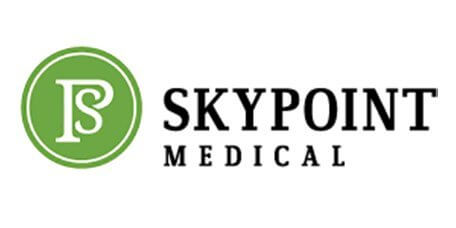The era of personalized medicine has arrived.
No longer must physicians leave patient outcomes to chance. Working with Alpha Genomix will give physicians and their patients critical insights into drug effectiveness and potential adverse drug reactions before initiating a pharmacotherapy
Alpha Genomix Offers:
- High-Quality Collection Method
- Easy to read reports available in 3-5 days
- Extensive pharmacogenetic testing panel
- Exceptional Customer Service

What is Pharmacogenetics?
Pharmacogenetics is the study of how genetic differences among individuals cause varied response to a drug.
What will the results of the test tell me?
Specifically, how quickly your body metabolizes, or filters, a given drug. Some people are rapid metabolizers. They flush drugs quickly from their system and may never realize any benefit from taking a “normal” or “one size fits all” dose. A poor metabolizer is just the opposite, with a “normal” dose building to potentially dangerous levels. Understanding how you metabolize the drugs you are prescribed allows your doctor to customize your treatment and calculate the safest, most effective dose for you.
What type of sample is required to perform the test?
A sterile swab is used to gather a sample of your DNA from inside your cheek. It is simple and painless.
Is there a cost for my test?
Testing performed by Alpha Genomix is a routine clinical laboratory test. Medicare covers this type of test as well as most private insurance plans. There may be a co-pay, depending on the specifics of your individual policy. If you have any questions regarding billing, please contact us directly at 847-882-1438.
How will I get my results?
The results of your test will be sent directly to your doctor 3-5 days after we receive your sample.
| PATHWAY | POPULATION* | DRUG CLASSES (PRECISION MEDICINE) |
|---|---|---|
| ABCB1 | Undetermined | Contraceptives and Protease Inhibitors |
| ANKK1/DRD2 | 35% Poor | Nicotine Dependence |
| APOE | Elevated Risk in 30% | Cardiovascular Risk |
| COMT | 32% Poor | Anti-ADHD Agents and Opiods |
| FACTOR II | Elevated risk in 2% | Thrombophilia Risk |
| FACTOR V LEIDEN | Elevated risk in 5% | Thrombophilia Risk |
| MTHFR | Variation in ~32% | Folate Metabolism |
| OPRM1/OPRK1 | Variation in ~20% | Antiaddictives and Opioids |
| SLC6A4 | Variation in ~34% | Antidepressants, Antipsychotics |
| VKORC1 | 41% Poor | Anticoagulants |
| CYP1A2 | 40% Rapid | Antidepressants, Muscle relaxants, Antipsychotics, Antiarrhythmics, Antiemetics, and Beta Blockers |
| CYP2B6 | 12% Rapid 18% Intermediate Poor in 35% | Antidepressants, Opioids |
| CYP2C9 | 40% Intermediate 3% Poor | Anticoagulants, Sulfonylureas, Pain Killers, NSAIDs, and Angiotensin II Blockers |
| CYP2C19 | 28% Rapid 32% Intermediate 4% Poor | Proton Pump Inhibitors, Benzodiazepines, Anticonvulsants, Antidepressants, Muscle Relaxants, Antiplatelets, and Antifungals |
| CYP2D6 | 3% Rapid 35% Intermediate 10% Poor | Antidepressants, Antipsychotics, Antihypertensives, Antiarrhythmics, Pain Killers, Beta Blockers, Anti-ADHD Agents, Antidementia Agents, Antiemetics, and Opioids |
| CYP3A4 | 12% Intermediate 1% Poor | Antiarrhythmics, Antipsychotics, Anticonvulsants, Benzodiazepines, Immunosupressants, Calcium Channel Blockers, Opioids, Phosphodiesterase Inhibitors, and Statins |
| CYP3A5 | 88% Poor | Antiarrhythmics, Antipsychotics, Anticonvulsants, Benzodiazepines, Immunosupressants, Calcium Channel Blockers, Opioids, Phosphodiesterase Inhibitors, and Statins |
*Population data are approximate values taken from multiple sources.
Services

